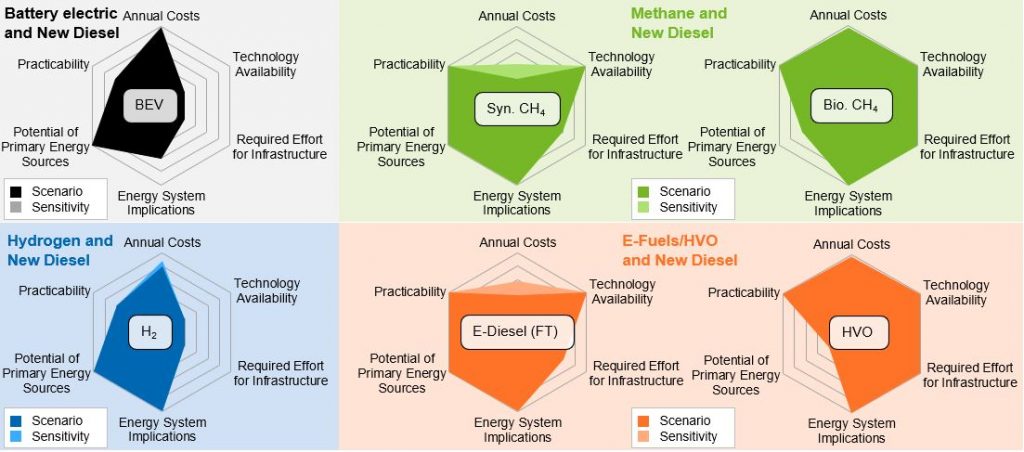The study “Renewable Long-Haul Road Transport Considering Technology Improvements and European Infrastructures” on the technological options to reduce green house gas emissions in long-haul heavy-duty road transport was published in july 2023.
The results shows that while all options have their strengths and weaknesses, the biological based and synthetic renewable fuels that are combined with conventional internal combustion technologies makes an especially strong case in the short term until 2030, while still also offering a long-term perspective with the power-to-gas/fuel-technologies.
Unfortunately, this is not reflected in current European policy that is tilting the playing field away from these renewable options in the current suggestion for the CO2 performance standard for heavy duty vehicles .
The team of scientists from the ERIG community coordinated by Prof. Dr. Markus Friedl at the Eastern Switzerland University of Applied Sciences (OST) recommends to:
- Give long-term security for investments into vehicles and infrastructure by
defining European and definite rules. - Set technology-neutral regulations demanding the same strict goals on
GHG emissions from all technologies. (“green-washing” must be avoided) - The GHG emissions reduction goals, should be at least Well-to-Wheel
(WtW) approaches, if considering the entire life cycle (LCA) is not
practically possible.
Download publication:


